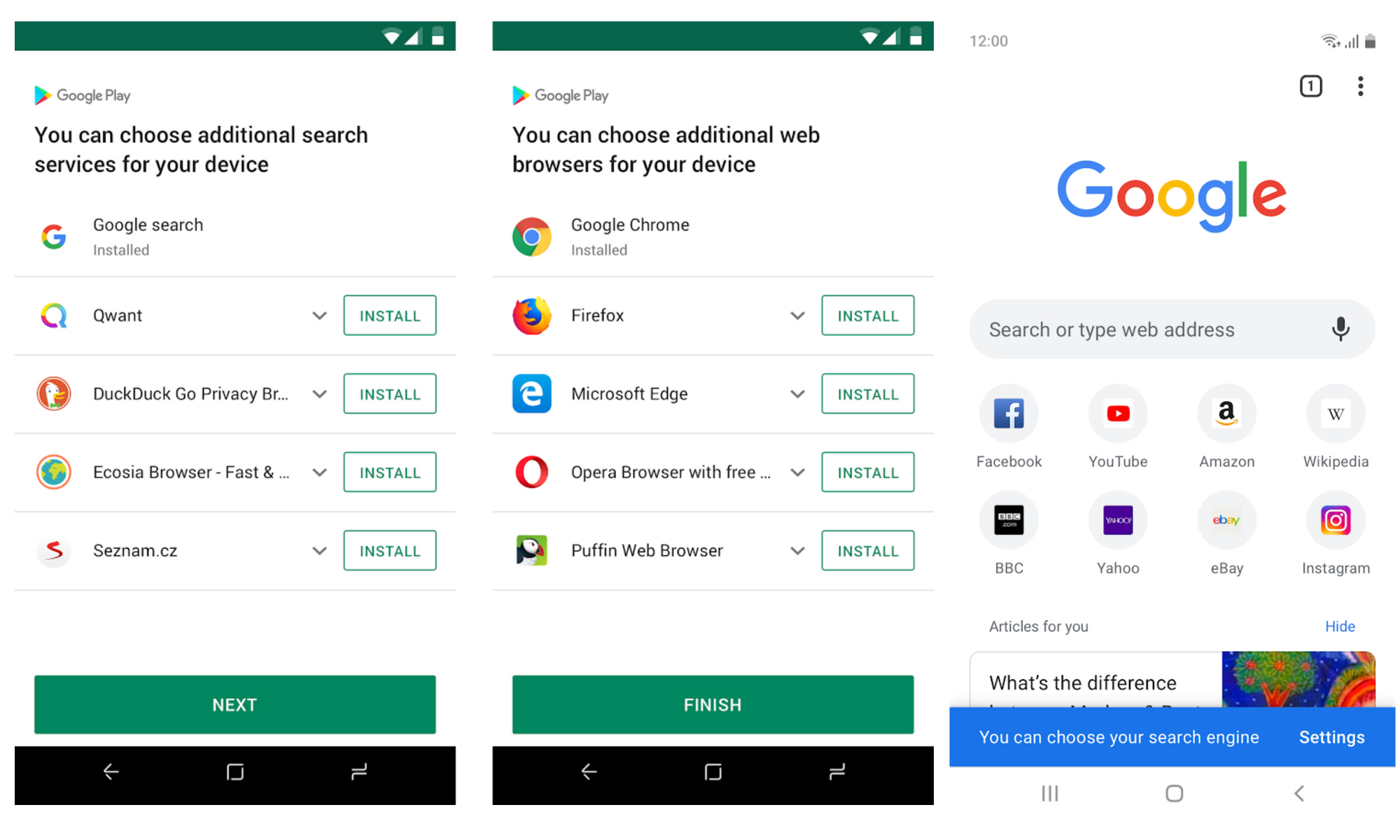Europeans now have the option to choose the search engine on Android
Google this week announced that is changing Android in Europe so Europeans have new screens with an option to download search different search apps and browsers. Google is complying with the antitrust measures imposed by the European Commission. According to Google, the new screens are rolling out over the next weeks and will apply to both existing and new Android phones in Europe.

European Commission says pre-installed apps can create a status quo bias, as users who find search and browser apps pre-installed on their devices are likely to stick to these apps.
European Commission also found that Google granted financial incentives to some of the largest device manufacturers as well as mobile network operators on condition that they exclusively pre-installed Google Search across their entire portfolio of Android devices. European Commission says this harmed competition by significantly reducing their incentives to pre-install competing search apps.
In July, last year, the European Commission fined Google with €4.34 billion for illegal practices regarding Android mobile devices to strengthen the dominance of Google’s search engine. The Commission required Google to bring its illegal conduct to an end in an effective manner within 90 days of the decision. If Google failed to ensure compliance with the Commission decision, it would be liable for non-compliance payments of up to 5% of the average daily worldwide turnover of Alphabet.
What is Google doing to comply?
In Android, the new screens will be displayed the first time a user opens Google Play after receiving an upcoming update. Two screens will surface: one for search apps and another for browsers, each containing a total of five apps, including any that are already installed. Apps that are not already installed on the device will be included based on their popularity and shown in a random order. The apps shown will vary by country.
Users can tap to install as many apps as they want. If an additional search app or browser is installed, the user will be shown an additional screen with instructions on how to set up the new app.
Where a user downloads a search app from the screen, Google will also ask users whether they want to change Chrome’s default search engine the next time they open Chrome.
Why this matters?
European Commission found out that in Android devices (with Google Search and Chrome pre-installed) more than 95% of all search queries were made via Google Search, and on Windows Mobile devices (Google Search and Chrome are not pre-installed) less than 25% of all search queries were made via Google Search. More than 75% of search queries happened on Microsoft’s Bing search engine, which is pre-installed on Windows Mobile devices.

